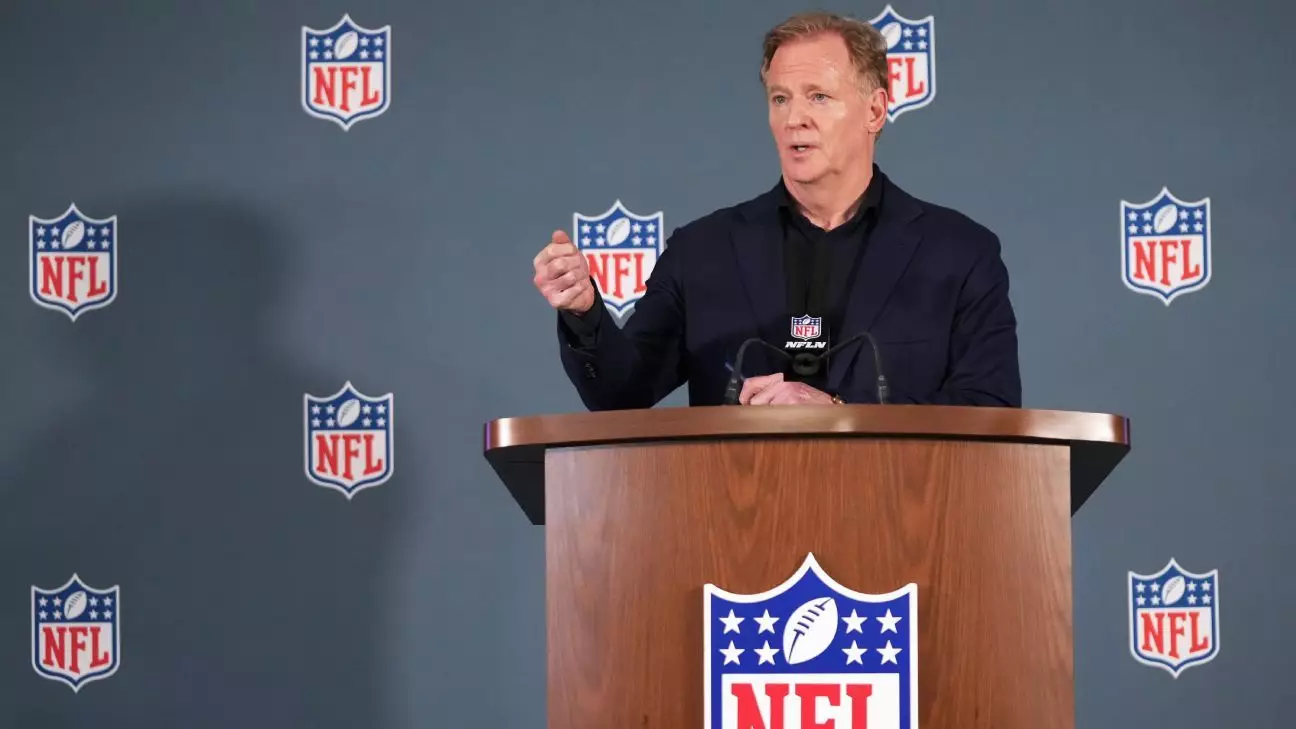The excitement is palpable as the NFL sets its sights on integrating flag football into the 2028 Olympic Games in Los Angeles. NFL Commissioner Roger Goodell recently revealed a growing enthusiasm among players who are eager to don their national colors and compete on this prestigious global stage. His comments indicate a broader acknowledgment of flag football not merely as a variant of American football but as a stepping stone to international recognition and acceptance of the sport.
Players’ interest reflects a significant cultural shift within the NFL: the desire to engage with fans and communities beyond the borders of the United States. Goodell highlighted that many players aspire to represent either the U.S. or their countries of origin, showcasing a sincere wish for global representation. This burgeoning interest is not just about athletic prowess; it speaks volumes about unity, pride, and international camaraderie within the NFL. As sports fans, we must recognize that this represents a pivotal moment in the evolution of American football, expanding its reach and relevance worldwide.
Navigating the Challenges Ahead
However, the path to Olympic participation is fraught with challenges. Goodell acknowledged pressing concerns surrounding injury prevention, player availability during the Olympic schedule, and potential conflicts with the NFL training camps that commence late summer. The Olympics are set for July 14-30, 2028, clashing with a critical period for NFL teams as they prepare for their respective seasons. This reality necessitates strategic discussions not only with the players’ union but also among the league’s owners and stakeholders to ensure an equitable solution for all parties involved.
The NFL’s commitment to flag football is more than just an Olympic venture; it is a strategic initiative to globalize American football. By introducing this sport to a wider audience, the league aims to cultivate interest in American football in regions where it has previously struggled to gain traction. Establishing these connections is vital in the league’s aspiration to cement itself as a truly international phenomena.
Diversity Efforts Under Scrutiny
Throughout this discourse on the Olympics, the subject of diversity in the NFL remains ever-present. As Goodell reiterated the league’s commitment to diversity initiatives, it becomes clear that the conversation surrounding representation within the NFL is as crucial as that of Olympic aspirations. Criticism has mounted, particularly due to a glaring absence of Black offensive coordinators. The urgency for a shift in hiring practices is undeniable, yet Goodell assures us that there are talented individuals from diverse backgrounds ready to take the helm.
The landscape of professional football should mirror society’s diverse fabric. Goodell’s recognition of this need underscores an important truth: diversity isn’t merely a token gesture but rather an essential quality that enhances decision-making and creative strategies in the game. This commitment is further reinforced by Jerry Jones’s support for the Rooney Rule, which mandates the inclusion of underrepresented candidates during interviews for key coaching and managerial positions.
The Uncertainty of Policy and Player Safety
As these conversations unfold, one name looms large in the discourse: Justin Tucker, the Baltimore Ravens kicker embroiled in serious accusations. With 16 massage therapists from various establishments alleging inappropriate behavior, the NFL’s ongoing investigation into Tucker emphasizes the league’s balancing act—nurturing equitable inclusion while grappling with accountability issues. Goodell has insisted on the need for thorough reviews, asserting that any updates will be communicated when appropriate.
The NFL’s handling of such sensitive matters carries weight beyond the field; it’s a reflection of how sports entities must navigate the complexities of player conduct and public perception. The ability to enforce policies that prioritize both player integrity and safety is essential, especially as the league navigates an atmosphere that increasingly values transparency and justice.
As we look toward the future, the NFL stands at a crossroads of opportunity and responsibility. The merging of flag football into the Olympic framework has the potential to redefine the sport’s image and attract fresh fandom globally. Meanwhile, addressing diversity, equity, and accountability will determine the league’s legacy as it evolves in today’s ever-changing societal landscape. The anticipation of Olympic glory is tangible, yet so too is the commitment to a more inclusive and responsible NFL.

